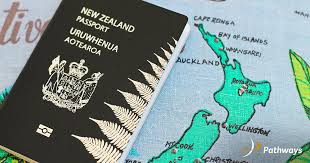Are you an Australian citizen dreaming of exploring the stunning landscapes, vibrant cities, and multicultural wonders of Canada? Well, you’re in luck! We have prepared a step-by-step guide that will unravel the mysteries behind applying for a Canada visa. From deciphering the application process to gathering all necessary documents – we’ve got you covered. So grab your passport and join us on this exhilarating journey as we navigate through the intricacies of obtaining a Canadian visa for Australian citizens. Get ready to embark on an adventure like no other! CANADA VISITOR VISA
Introduction to Canada Visitor Visa
If you are planning to visit Canada for leisure, tourism, or business purposes, then you will need a visitor visa. A visitor visa is an official document that allows foreign nationals to enter and stay in Canada for a temporary period of time. It is also known as a temporary resident visa (TRV) and is issued by the Immigration, Refugees and Citizenship Canada (IRCC).
Who Needs a Canada Visitor Visa?
The first step in understanding the requirements and eligibility criteria for a Canada visitor visa is determining whether you actually need one. There are certain countries whose citizens do not require a visitor visa to enter Canada, but rather just an Electronic Travel Authorization (eTA). Some examples of these eTA-exempt countries include the United States, Australia, Japan, and most European Union member states.
However, if you are from a country that does not have an eTA agreement with Canada or if you plan on staying longer than 6 months, then you will need to apply for a visitor visa.
Types of Visitor Visas
There are two types of visitor visas available: single entry and multiple entry. The type of visa you should apply for depends on your specific travel plans.
A single entry visitor visa allows you to enter Canada only once during its validity period. Once you leave the country, this type of visa will expire and cannot be used again.
On the other hand, a multiple entry visitor visa allows visitors to enter and exit Canada multiple times within its validity
Difference between Canada Visitor Visa and Canada Visa for Australian Citizens
When it comes to traveling to Canada as an Australian citizen, there are two types of visas that you can apply for: the Canada Visitor Visa and the Canada Visa for Australian Citizens. While both visas allow entry into Canada, there are some key differences between them that you should be aware of. CANADA VISA FOR AUSTRALIAN CITIZENS
1. Purpose of Travel:
The main difference between these two visas is the purpose of travel. The Canada Visitor Visa is intended for temporary visits such as tourism, visiting family or friends, or attending a business conference. On the other hand, the Canada Visa for Australian Citizens is specifically for those who wish to work or study in Canada.
2. Length of Stay:
Another important difference between these two visas is the length of stay allowed in Canada. With a Visitor Visa, you can stay in Canada for up to 6 months at a time. However, with a Canadian Work or Study Permit (granted under the Australia-Canada Youth Mobility Agreement), you can stay and work/study in Canada for up to 24 months.
3. Eligibility Criteria:
The eligibility criteria also differ slightly between these two visas. In order to be eligible for a Visitor Visa, you must prove that you have strong ties to your home country and will return after your visit ends. This could include things like employment proof, property ownership, family ties etc.
For the Canadian Work/Study Permit under the Youth Mobility Agreement, there are age restrictions (18-35 years old) and certain educational qualifications required depending on which category
Requirements for a Canada Visitor Visa
If you are planning to visit Canada for a short period of time, you may need to apply for a visitor visa. This visa allows foreign nationals to enter Canada temporarily for tourism, business or other purposes. However, before applying for a Canada visitor visa, it is important to understand the requirements and eligibility criteria set by the Canadian government.
1. Valid Passport
The first requirement for a Canada visitor visa is a valid passport. Your passport should be valid for at least six months beyond your planned stay in Canada. It should also have at least one blank page where the visa can be placed.
2. Application Form
All applicants are required to fill out the appropriate application form depending on their country of residence. The application form must be completed accurately and truthfully with all necessary information and documents attached.
3. Proof of Financial Support
You must provide proof that you have enough financial resources to cover your trip expenses in Canada such as accommodation, transportation, food, and medical costs if needed. This could include bank statements, pay stubs or letters from your employer stating your salary and employment details.
4. Travel Itinerary
A detailed travel itinerary including flight reservations showing your departure from and return to your home country is mandatory when applying for a Canadian visitor visa.
5. Purpose of Visit
You must clearly state the purpose of your visit in your application form as this will determine which type of visitor visa you should apply for (tourism, business or family visit). You may also need additional supporting documents
Valid passport
A valid passport is an essential requirement for anyone seeking a Canada Visitor Visa. This document serves as proof of your identity and nationality, and it must be presented to Canadian immigration officials upon entry into the country.
In order for your passport to be considered valid, it must meet certain criteria set by the Government of Canada. These include:
1. Validity Period: Your passport must have a minimum validity period of six months beyond your planned date of departure from Canada. If your passport is due to expire within this timeframe, you will need to renew it before applying for a visitor visa.
2. Condition: Your passport should be in good condition, with no tears or damage that could make it difficult to identify you or your travel history.
3. Issuing Authority: The Canadian government only recognizes passports issued by competent government authorities in their respective countries.
4. Biometric Data: Most countries now issue biometric passports, which contain electronic information about the holder’s identity and facial features. If your country issues such passports, you will need to submit them for scanning when entering Canada.
5. Blank Pages: Your passport must have at least two blank pages available for stamping upon arrival in Canada.
6. Non-Expiry Clause: Some countries have special agreements with Canada that allow their nationals to enter with expired passports under specific conditions; however, this does not apply if you are traveling on a visitor visa.
It is important to note that even if you have met all these requirements, there may still be


